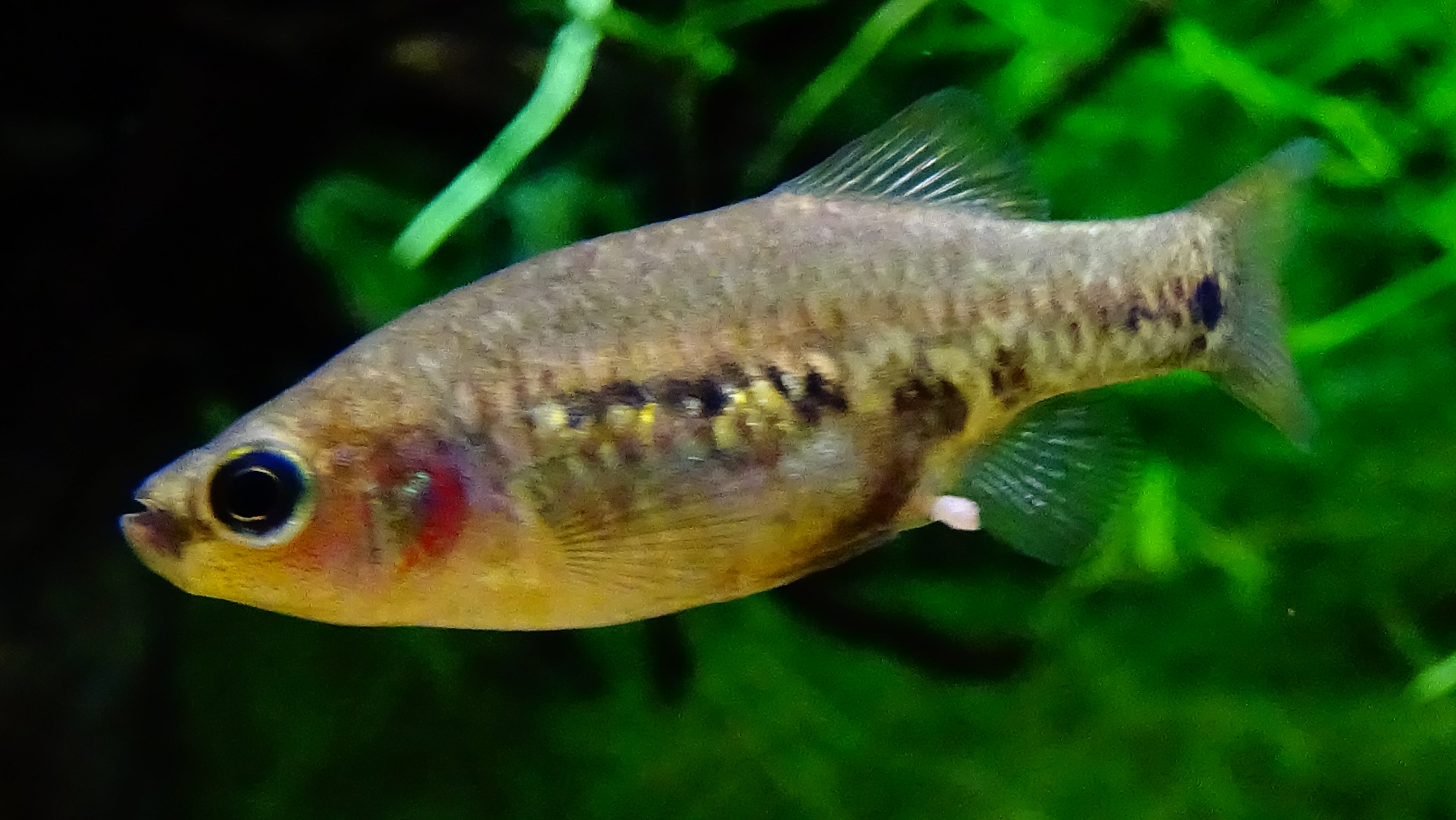Tequila fish returned to the wild in Mexico after being declared extinct
It is the first time an extinct species of fish has been successfully reintroduced in Mexico

Tequila fish, which disappeared from the wild in 2003 due to pollution and the introduction of invasive species, has been successfully reintroduced in a river in Jalisco, Mexico, and is once again thriving in its natural habitat.
A decades-long partnership between conservationists at the Chester Zoo and Michoacana University of Mexico enabled the reintroduction of the small freshwater fish to the Teuchitlan River earlier this year.
In 1998, the project began when scientists at the Michocana University of Mexico’s Aquatic Biology Unit received five pairs of the fish from the Chester Zoo. These 10 fish established a new colony within the university’s laboratory, which scientists maintained and expanded over the following 15 years.
As conservationists prepared to reintroduce the species into their natural freshwater habitat, 40 females and 40 males from the laboratory aquarium were released into large artificial ponds at the university. These ponds acted as a semi-natural environment, and within them, the fish encountered real-life scenarios including potential competitors, parasites, prey, and predators, including birds, turtles and snakes.
After four years in the artificial ponds, scientists estimate that the Tequila fish population increased to some 10,000 individuals. It was from these ponds that scientists took 1,500 fish to release into the wild.
Conservationists also spent two years surveying in and around the Teuchitlan River prior to releasing the fish. They studied the diversity and population of zooplankton, phytoplankton, invertebrates, fish and parasites within the river, to determine where the best release sites would be. They also worked with local communities to increase awareness of aquatic habitats and enhance knowledge surrounding the value of healthy water sources. Ultimately through their work, conservationists established a long-term monitoring programme through which local people assess water and habitat quality.
Since the fish were released, scientists have said that they are thriving and have already begun breeding in the river. The project has also been cited as an International Union for the Conservation of Nature case study for successful global reintroductions.
Professor Omar Dominguez, of Michoacana University of Mexico, said: “The tequila splitfin has, for many years, been used by scientists to study the evolution, biogeography and live bearing reproduction techniques of fishes and is a very important species. We could not stand back and allow it to disappear.
“Successfully reinstating this fish in the wild also offers a wider positive impact. Not only has the fish itself been saved, but the environment it lives in has been restored.”
Prof Dominguez added: “This is the first time an extinct species of fish has ever been successfully reintroduced in Mexico and so its’s a real landmark for conservation.
“It’s a project which has now set an important precedent for the future conservation of the many fish species in the country that are threatened or even extinct in the wild, but which rarely take our attention.
Dr Gerardo Garcia, the curator of lower vertebrates and invertebrates at the Chester Zoo said: “This is an important moment in the battle for species conservation.
“It is a real privilege to have helped safe this charismatic little fish and it just goes to show that with the skill and expertise of conservationists, and with local communities fully invested in a reintroduction project, species can make a comeback from environments where they were once lost.
“This is also a great example of how good zoos can play a pivotal role in species conservation,” he added.
“Without the zoo population keeping the species alive for many years, the fish would have been lost forever. It’s humbling to think that a small population, being cared for by aquarists in Chester, has not led to their revival in the wild.”
Dr Garcia also said that the wild population was now breeding naturally at a “tremendous” rate.
Conservationists at both the Chester Zoo and the Michoacana University of Mexico hope that this project will serve as a blueprint for reintroducing other fish species into the wild, and are already working on a new rescue mission for the golden skiffia, another fish species native to the Teuchitlan River.
Join our commenting forum
Join thought-provoking conversations, follow other Independent readers and see their replies
Comments
Bookmark popover
Removed from bookmarks